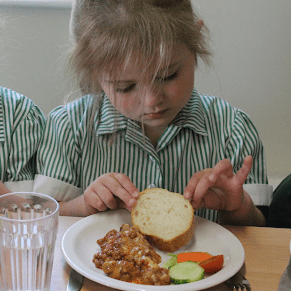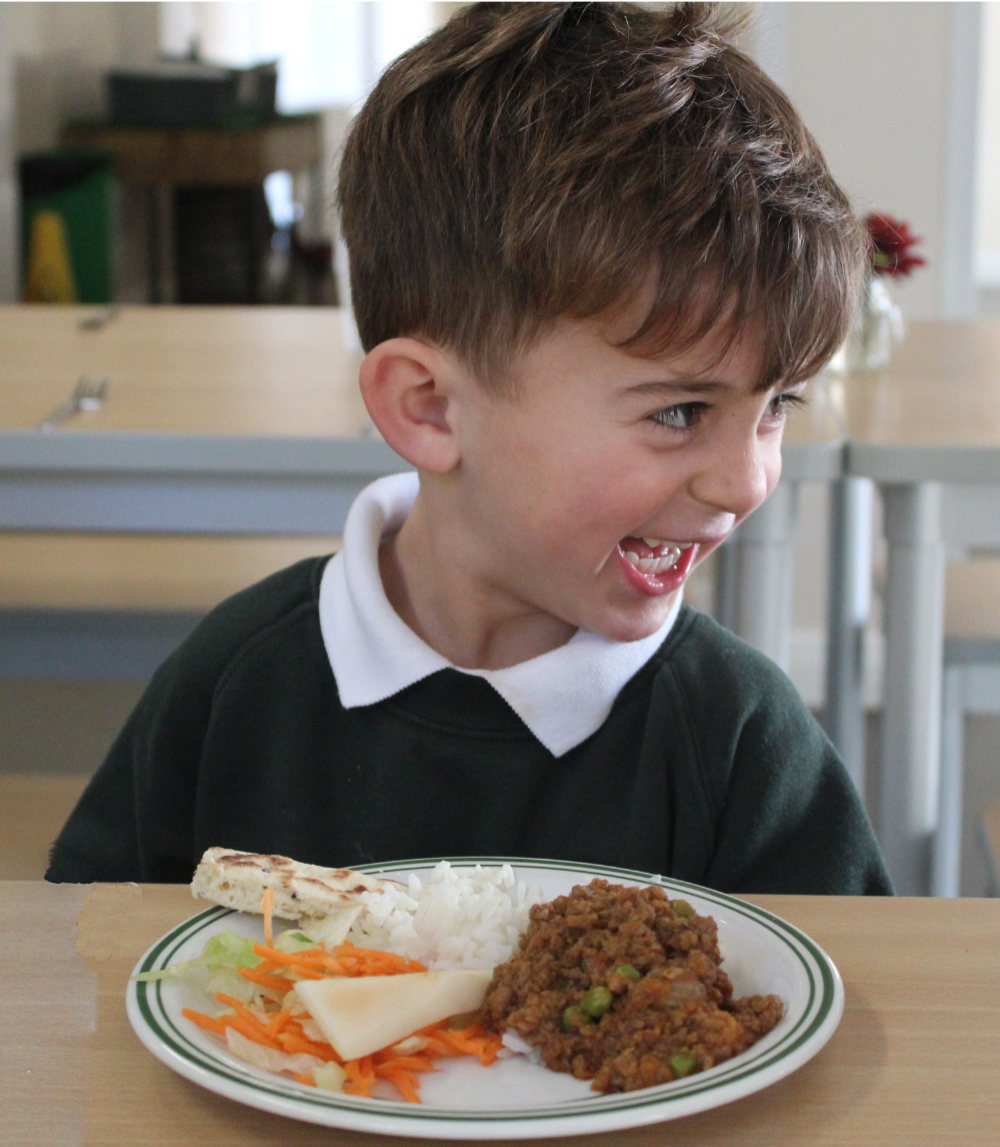It can be worrying when your child sometimes refuses to eat, and you’re unsure if they’re consuming enough food. It’s important for kids to develop a healthy relationship with food from a young age; however, it is perfectly normal for children to refuse to try or eat certain foods.
There are a number of reasons why children are picky eaters. There are factors such as age, personality, genetics, the media and peer influence. However, research suggests negative or non-responsive feeding practices are associated with higher levels of fussy eating in comparison to positive or responsive feeding.
If a child is being particularly picky and isn’t being fuelled with the right food, it can lead to nutrient deficiencies, which can impact both the child’s short and long-term health.
Here at our prep school in Devon, we’re devoted to supporting our students and parents at every stage, including helping them develop a healthy relationship with food.
In this piece, we’ll look at the most common reasons children are fussy eaters and what we can do as parents to help children evolve a nutritious diet.

Environmental Factors
External factors tend to be the most common reasons that influence how children form eating habits; they can be cultural, affected by the media or peer influence.
Parental Influence
The most prevalent reason as to why children form the habits they do is due to the influence parents hold, how they establish the households feeding practices, and the types of foods that are eaten.
Model Behaviour
One of the most common reasons children develop fussy eating habits is that they often model those around them.
They’ll start to develop similar eating behaviours and attitudes towards food. Therefore, it is more likely that, if one parent is picky with the food they consume, the child will follow suit.
Applying Pressure
Applying pressure to your child and insisting they eat certain foods or a certain amount can actually have an adverse effect, where they can end up eating less due to the pressure applied.
It’s key to build respect and listen to your child; if they’re not hungry, then they shouldn’t be forced to eat. If pressure is applied, then the child can associate mealtimes with anxiety.
Using Dessert as a Reward
‘You can have dessert after you’ve eaten everything on your plate’, does this phrase sound familiar? Threatening to withhold their dessert unless they eat the food in front of them teaches them to value a sweet treat over more nutritious food. Which ultimately can ignite a power struggle over food.
The Media
The media and advertisements can be incredibly persuasive to children. If a child sees a particular food or snack advertised, this can affect their way of seeing food. Therefore, it’s vital to know what media your children consume to understand whether this affects what they eat.

Child Factors
The external environment isn’t always responsible for the habits that children form. Factors such as age, tactile defensiveness, personality and cognitive elements can contribute to becoming a picky eater.
Sensory Food Aversions
Eating is a sensory task; a child can become sensitive to specific characteristics of food and refuse to eat due to the characteristic; whether that’s smell, texture, taste, temperature or appearance.
Tips to Combat fussy Eating
Although eating habits tend to be learnt at an early age, there are many ways in which we can help children to combat picky eating.
Be Positive Offering Food
It’s important to show children the positives of the food that you’re offering them. As mentioned, children learn and copy those around them.
If you’re introducing new foods, take time to eat the same food with your child, as they’re more likely to try something that they see you’re enjoying.
Set a Meal Schedule
Developing a meal schedule teaches a routine and provides peace of mind as you’ll know that your child is receiving enough nutritious food. If they refuse to eat their breakfast, as an example, they’ll have a mid-morning snack not too far away.
It is recommended that three meals a day and two snacks, one mid-morning and one mid-afternoon, is a good schedule.
Don’t Force Food
If your child rejects a certain food, don’t force them to eat it, as this can reignite the power struggle. Instead, take the food away without a fuss and reintroduce the food at another date to try again.
Don’t Use Food as a Reward
Using food as a reward or a punishment can undermine the healthy eating habits we’re trying to teach our children.
For example, giving your child sweets for completing a certain action or behaviour can encourage them to eat when they’re not hungry to reward themselves. This can lead to long term impacts, so offering an alternative reward, such as a trip to the park, is recommended.
Have Fun With Food
Food doesn’t have to be boring or plain, be creative with the food choices, such as offering a sauce with vegetables or cutting the fruit in a specific shape to make the food look more appealing.

Children learn about the flavours and textures they like and dislike by being exposed to various foods, observing peers, and being rewarded or punished for not eating certain things.
Food preferences develop early on and can affect food choices for life. However, we can help combat issues and help to shape your children to have a healthy relationship with food.
We hope this article has helped you understand why some children are picky eaters and that the tips we’ve explored will help both you and your child develop a healthy relationship with food.
To learn more about what we offer here at St Peter’s Prep, please contact Rachel Elliott, Director of Admissions & Marketing, on 01395 280335 or email rachel.elliott@stpetersprepschool.co.uk.









